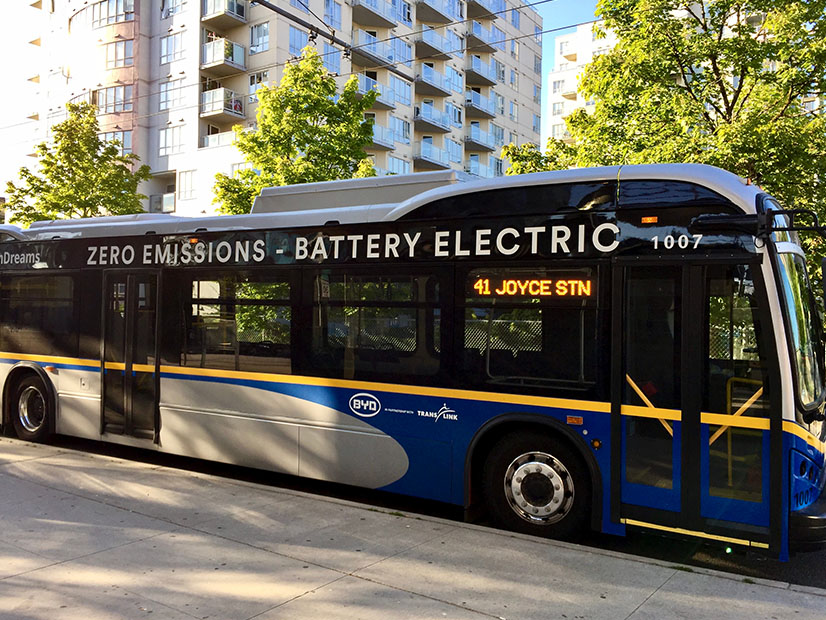DENVER, Colo. — Adequate funding, deployment challenges and hydrogen-versus-battery electric were hot topics last week at the 2021 International Zero Emission Bus Conference, hosted by the Center for Transportation and the Environment.
The event presented more than 75 speakers to more than 1,000 attendees.
Thursday’s panelists described how each of their organizations has started to transition to zero-emission buses, an effort that has met with overwhelmingly positive response across their industries.
“I think there’s a theme here. Everybody seems to like them,” Ian Redhead, deputy director at Kansas City Airport, said.
Though this has been the case, there continue to be barriers to ZEB adoption, especially when considering funding. While grant programs are available, it can be difficult to qualify and obtain funding through these avenues, Redhead said.
Erik Bigelow, senior engineering consultant for CTE, addressed the particularly challenging task of funding the transition to ZEBs in education.
“Everybody wants kids riding clean electric school buses, but education funding is always a challenge,” he said.
But even with initial funding challenges, it is still worth it for organizations to make the transition, Redhead said.
“When we did our homework, we made a really compelling case about why the electric buses were the way to go long-term. … The technology is not cheap … but long-term when you do the cost-benefit analysis, it definitely warrants the investment,” he said.
Moderator Dan Raudebaugh, executive director at CTE, said the transition will have to move at a much faster pace to reach decarbonization goals. Mass deployment of electric buses will be necessary in the near-term to significantly reduce carbon emissions from the transportation sector, he said.
“We’ve been deploying buses at four, five, six at a time, and to make the next step we’re going to have to start deploying buses at 15, 20, 25 at a time,” Raudebaugh said.
Hydrogen Fuel Cell or Battery Electric?
A question a company must ask before transitioning to electric buses is what kind of technology it needs. While hydrogen fuel cell and battery electric buses are both more efficient and environmentally friendly, they can serve different purposes based on the function of an organization.
Salvador Llamas, chief operating officer at AC Transit said, “Battery electric or fuel cell. Which one’s better? That’s like me trying to pick my favorite child. They’re both the same. They’re both electric drive buses. One is a sprinter; one is a marathon runner. One combs her hair different than the other. This is exactly why AC transit created the Zero Emission Transit Bus Technology Analysis to really get deep into the weeds on the data, the performance metrics, the cost and start to really guide us as an agency whether the technologies that are available are going to be able to meet and fulfill the duty cycles that we commit to our communities.”
AC Transit General Manager Mike Hursh said cost is the biggest barrier to hydrogen.
“If we can’t get hydrogen down below $5/kilogram it’s just not going to compete,” he said. “Once we have market saturation of hydrogen and the price is there, it’s going to be a very on-par competitor to the other zero-emission technologies out there.”
Facilitating the Transition
The panelists agreed that sharing information and industry cooperation would help spark more adoption of ZEBs.
“We can influence the economies of scale when we purchase our equipment together. We can also share best practices [and] lessons learned so we can avoid pitfalls that cost us money,” Llamas said.
Redhead said more investment and research will be key to not only transitioning to electric buses, but to an electric economy.
“The more that people are investing in the technology, the better it is for all of us. We’re talking about buses and so forth, but buses [are] a jumping off [point] to other things, and as long as people start realizing that there are other industries … that are also looking at electric technologies … then we will have more and more options to be able to supply what we want.”



